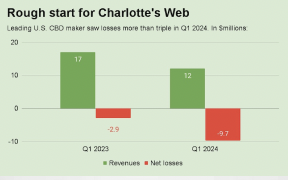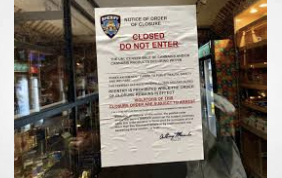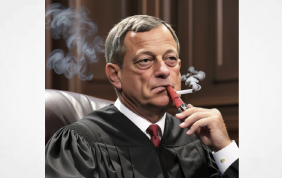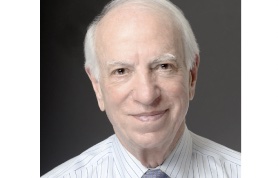UVA writes
This fall, Bonnie stepped down from his tenured position at the Law School after nearly 51 years of teaching and research, 44 years of death row advocacy, and decades of shaping law and public policy on drugs, mental health, adolescent development and gun violence.
The Norfolk, Virginia, native first set foot in Clark Hall, the Law School’s former home, at a time when young people’s paths seemed defined more by catalytic and cataclysmic events than by personal agency.
Eight years earlier, the immorality of Virginia’s “massive resistance” to school desegregation pushed Bonnie — a liberal, Jewish youth — to choose to sit at the back of city buses and then nudged him north to Johns Hopkins University for college.
“I was thrust into the maelstrom of massive resistance at the very time that I was opening my eyes to the world around me and becoming conscious of my own identity — and of my responsibilities to others and to my community,” Bonnie wrote in a personal essay in “Law Touched Our Hearts,” a 2009 collection of essays he co-edited with UVA Law professor Mildred Robinson marking the 50th anniversary of the Supreme Court’s decision in Brown v. Board of Education.
His contemplation bred new ideas about the role of race in inequality and criminal justice, and “transformed” him from a kid who dreamed of playing professional baseball into a serious young student who knew he wanted to embrace the law as a path to reform.
Despite its Southern locale, he quite liked the vibe when he visited the Law School in the mid-1960s, and with the Vietnam War in full swing, it made sense to stay close to home for his legal education — but what kind of future lay ahead was unclear.
“It was the ’60s, and our nation seem to be coping with a tragedy every moment,” Bonnie said. “And the Vietnam War and the draft narrowed your vision of your future.”
Because Bonnie had already received a draft deferment to attend law school, he knew he would be called up the moment he graduated unless he had a suitable military or qualifying public service commitment. During his second year, he accepted an offer from the Air Force General Counsel’s office at the Pentagon to serve in that civilian office for three years during his commitment as an Air Force captain.
Just days before Bonnie was set to graduate from the Law School, a possible clerkship with the Supreme Court evaporated and the school asked the 23-year-old Bonnie if he would instead like to teach for the year. The Air Force agreed to defer his active duty until July 1970.
During his yearlong teaching stint, Bonnie started a criminal appellate clinic that helped establish prisoners’ First Amendment rights and he began questioning the country’s drug laws, a path of inquiry that would seed virtually all his subsequent work.
The Marijuana Commission
Deep in the bowels of Clark Hall — two stories below the surface of the Lawn — Bonnie’s office shared a busy basement hallway with the Virginia Law Review managing board and a colorful young professor, Charles Whitebread, whom Bonnie dubbed the “pied piper for young ’60s counterculture students.”
The two were horrified by a Virginia court decision that sent a young man to prison for 20 years for possessing a small amount of marijuana.
“I’m sure Charlie smoked weed and other mind-altering substances, while I’m just a boring innocent who’s never touched the stuff,” Bonnie said. “But I didn’t think you should put people in jail for it.”
Together they wrote an influential Virginia Law Review article about the history of U.S. marijuana laws, based on case law, legislative background and a few newspapers. The article took over virtually the entire June 1970 issue.
Soon Bonnie had to leave to work at the Pentagon, where he focused primarily on freedom of speech in the military, along with negotiating communications infrastructure for new base agreements. He also drove back to Charlottesville to present Law School seminars on issues he was learning about in the military. On one of those trips, he attended a lunch event at the Judge Advocate General’s Legal Center and School, next door to the Law School, about the newly enacted U.S. drug laws and President Richard Nixon’s National Commission on Marijuana and Drug Abuse. The commission came to be known as the Shafer Commission, after former Pennsylvania Gov. Raymond P. Shafer, who served as chairman.
At the lunch, Bonnie sat next to the Department of Justice’s speaker, who had just been appointed executive director of the new commission.
“It came up that I had just written this article on the history of the marijuana laws, and he said, ‘Well, how would you like to be a consultant to the commission?’” Bonnie recalled. “I said, ‘I can do better than that! All you’ve got to do is get John Dean [his colleague in the Justice Department and then general counsel to Nixon] to tell the Air Force to send me over to the White House.’”
He spent the next two years as the associate director of the Shafer Commission.
“It was a life-changing event,” he said. The job informed his values, taught him how to lead multidisciplinary working groups and synthesize massive amounts of information and facilitate consensus on difficult policy issues.
Both Shafer and the vice chair, Harvard psychiatrist Dr. Dana Farnsworth, characterized Bonnie as a “principal architect” of the commission’s two reports, including its unexpected recommendation that simple possession of marijuana be “decriminalized.”
Bonnie and Whitebread’s historical research in the federal records also provided the material for their co-authored 1974 book, “The Marijuana Conviction,” which ties prohibition to xenophobic perceptions and argues for the decriminalization of marijuana possession. The book was republished in 1999 and is considered a drug policy classic.
“My work at the commission was essentially a graduate education in addiction, clinical psychology and social sciences,” Bonnie said. “Everything I have subsequently done in my career is essentially attributable to the serendipity of sitting next to the commission’s executive director at lunch. It introduced me to areas of law, science and public policy that I otherwise would not have known a thing about.”
Read more at
https://www.law.virginia.edu/news/202310/richard-bonnie-69-retires-teaching-after-50-years

















